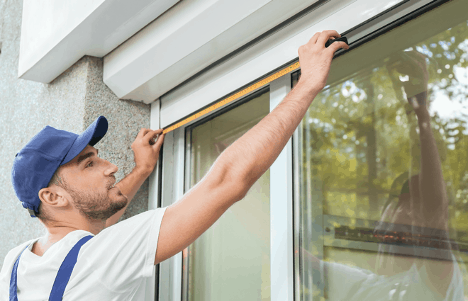Noise pollution is a growing concern in today’s urban and suburban environments. Whether it’s traffic, construction, or city life’s general hustle and bustle, unwanted noise can disrupt our peace at home. One potential solution to mitigate this issue is the installation of replacement windows. We will delve into the question of whether replacement windows reduce noise. We’ll examine the science behind sound insulation, the factors influencing noise reduction, the types of replacement windows that excel in this regard, and the overall benefits for homeowners seeking a quieter, more serene living space.
The Science of Sound Insulation
To understand whether replacement windows reduce noise, it’s essential to grasp the fundamentals of sound insulation. Sound is a form of energy that travels through vibrations in the air. When sound waves encounter obstacles, such as windows, they can be absorbed, reflected, or transmitted. Sound insulation minimizes sound waves’ transmission from passing through windows and into your living space. This is achieved using materials and design features that absorb or reflect sound, thus reducing the noise entering your home.
Factors Influencing Noise Reduction:
Several factors play a pivotal role in determining the effectiveness of replacement windows in reducing noise. Comprehending these factors is paramount for homeowners seeking a quieter, more serene environment.
Firstly, the type and design of the replacement windows significantly influence noise reduction. Different window styles and designs offer varying levels of sound insulation. For instance, double-glazed or triple-glazed windows tend to provide superior noise reduction compared to single-pane windows due to additional layers of glass and the insulating air or gas between them. Furthermore, the thickness of the glass plays a crucial role. Thicker glass panes are more effective at reducing noise as they absorb and block sound waves more efficiently than thinner glass.
In addition to the window type and design, the quality of seals and weatherstripping is paramount. Proper seals and weather-stripping around windows are crucial for minimizing noise infiltration. Gaps or leaks around windows can serve as pathways for sound to pass through, eliminating replacement windows’ benefits easily. Moreover, the frame material impacts noise reduction. Some materials, such as vinyl and fiberglass, offer better sound insulation properties than aluminum frames, which can transmit sound more readily. Lastly, the installation quality is a critical factor. Properly installed replacement windows with a snug fit and sealed gaps are more likely to excel in reducing noise infiltration, ensuring a quieter living space for homeowners.
Types of Replacement Windows for Noise Reduction:
When considering replacement windows for noise reduction, specific types, and features have proven to be more effective in creating a quieter living environment. Double-glazed or triple-glazed windows are exceptional choices as they consist of multiple layers of glass separated by insulating air or gas-filled spaces. This added complexity and insulation significantly reduce the transmission of external noise, providing homeowners with a peaceful retreat.
Laminated glass is another valuable option, constructed with multiple layers of glass and a layer of plastic or resin in between. This composition enhances sound insulation, making it an ideal choice for those seeking a quieter home. Casement windows, known for their tight seal when closed, offer enhanced sound insulation properties. Additionally, replacement windows with vinyl or fiberglass frames are preferred for noise reduction due to their sound-dampening qualities. Lastly, the effectiveness of noise reduction can be further enhanced by selecting windows with high-quality weatherstripping and sealing systems, which ensure minimal gaps for sound to infiltrate. By regarding these types and features, homeowners can make informed choices to create a more tranquil living environment.
The Benefits of Noise Reduction with Replacement Windows:
Reducing noise through replacement windows proposes numerous advantages for homeowners. A quieter living space ushers to enhanced comfort and relaxation, allowing residents to enjoy peace and tranquility without disruptions from external noise sources. This improvement in the overall living environment contributes to a better quality of life, promoting better sleep, concentration, and stress reduction.
Additionally, noise reduction can have positive effects on health and well-being, reducing the risk of sleep disturbances and stress-related health problems. Furthermore, the energy-efficient properties of many replacement windows designed for noise reduction can usher in lower heating and cooling costs, resulting in significant savings over time. Lastly, increased property value is an added benefit, as potential buyers often appreciate the comfort and privacy associated with a quieter home environment.
Replacement windows can be an effective solution for reducing noise infiltration into your home. By understanding the principles of sound insulation, and selecting the right replacement windows with features like double or triple glazing, laminated glass, and proper seals, you can significantly enhance the tranquility and comfort of your living space. While window replacement in Dallas can substantially reduce noise, it’s essential to complement these efforts with additional measures, such as curtains, rugs, and proper sealing, to create a tranquil and peaceful home environment. By taking these steps, you can enjoy the numerous benefits of a noise-free living space and improve your overall quality of life.



